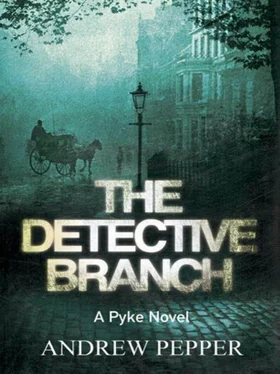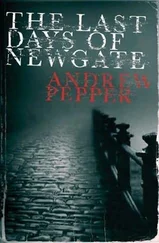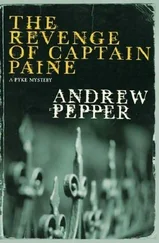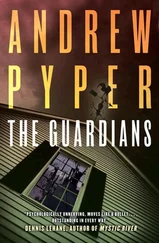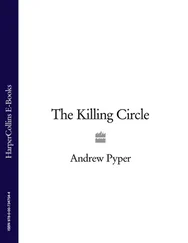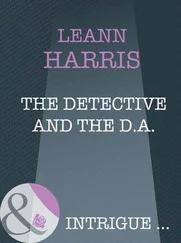Andrew Pepper - The Detective Branch
Здесь есть возможность читать онлайн «Andrew Pepper - The Detective Branch» весь текст электронной книги совершенно бесплатно (целиком полную версию без сокращений). В некоторых случаях можно слушать аудио, скачать через торрент в формате fb2 и присутствует краткое содержание. Жанр: Исторический детектив, на английском языке. Описание произведения, (предисловие) а так же отзывы посетителей доступны на портале библиотеки ЛибКат.
- Название:The Detective Branch
- Автор:
- Жанр:
- Год:неизвестен
- ISBN:нет данных
- Рейтинг книги:3 / 5. Голосов: 1
-
Избранное:Добавить в избранное
- Отзывы:
-
Ваша оценка:
- 60
- 1
- 2
- 3
- 4
- 5
The Detective Branch: краткое содержание, описание и аннотация
Предлагаем к чтению аннотацию, описание, краткое содержание или предисловие (зависит от того, что написал сам автор книги «The Detective Branch»). Если вы не нашли необходимую информацию о книге — напишите в комментариях, мы постараемся отыскать её.
The Detective Branch — читать онлайн бесплатно полную книгу (весь текст) целиком
Ниже представлен текст книги, разбитый по страницам. Система сохранения места последней прочитанной страницы, позволяет с удобством читать онлайн бесплатно книгу «The Detective Branch», без необходимости каждый раз заново искать на чём Вы остановились. Поставьте закладку, и сможете в любой момент перейти на страницу, на которой закончили чтение.
Интервал:
Закладка:
Shaw looked at him, dumbstruck. ‘I thought there was a connection. I just didn’t think to check the dates…’
‘Frederick, don’t feel bad. You’ve just broken this whole thing wide open. Now, I need you to tell me everything you know about the old investigation.’
Shaw’s hands were trembling slightly. ‘Do you really think there’s a connection?’
‘Just take your time,’ Pyke said, pulling his chair up to Shaw’s desk. ‘And start from the beginning.’
The first body was found by a crossing-sweeper early on 4 December at the crossroads of Tower and Little Earl Street in St Giles. The boy was soon identified as Johnny Gregg and was believed to be part of a gang of pickpockets that operated among the theatre crowd in Covent Garden and Drury Lane. From there, it was always easy to slip back into the rookery and relative safety. Gregg had been beaten to death with a hammer or some other blunt object but no family had come forward to claim the body. According to Shaw, no one had been especially concerned to find the boy’s murderer, at least not initially, presuming, rightly or wrongly, that, as a petty thief, he had stolen from the wrong person and had got what was coming to him.
But when a second body was found two weeks or so later, this time on the other side of St Martin’s Lane in Soho, people sat up and took notice, not least because of the gruesome nature of the death. Stephen Clough had been pinned to the door of a stable on Cambridge Street, six-inch nails driven through his hands and feet. He had also been stabbed in the stomach, and it was this wound, rather than the nails in his hands and feet, which, according to the coroner, had killed him.
Again, few people either in Soho or St Giles volunteered information beyond confirming that Clough, like Gregg, had been part of a gang of pickpockets that worked in the district. Nonetheless, this second murder had sent sections of the city into panic. The fact that children were being murdered, even if the children in question were dirt poor and belonged to the criminal classes, turned the story into a sensation. Rumours began to circulate about witchcraft and an underground coven of Devil worshippers. No one, it was said, was safe. The sales of pistols and knives soared and self-appointed constables joined the official police in patrolling the lanes and back-alleys of St Giles and Soho. In this febrile atmosphere, Shaw told him, the pressure to find the murderer had been intense, so when a man called Keate was brought to their attention, everyone, Shaw included, pounced on him. A night-soil man by trade, Keate lodged in one of the houses on King Street, St Giles, close to where the first body had been found. According to the men he worked with, Keate was a loner who, at nearly forty, was still under his mother’s thumb. He was also a deeply religious man, a Roman Catholic, and was troubled by visions of Heaven and, more often, Hell. Other lodgers reported that Keate had not been seen at the house on the night of the murders. His tool-chest was searched and a hammer was found, together with a distinctive hat that was later proved to belong to one of the boys. The hammer had traces of blood on the handle. Keate was arrested and taken to Bow Street police office. At his hearing, it was decided that the evidence against him was sufficient to warrant a trial, and at the trial, in spite of entering a ‘not guilty’ plea, Keate was found guilty. Two weeks later he was hanged in front of a crowd outside Newgate prison.
After Keate’s arrest and execution, no one else had been murdered. And no one, Shaw assured Pyke, had been in any doubt that they had got their man.
‘So when exactly was the second boy, Stephen Clough, found?’ Pyke took a piece of foolscap and picked up his pen.
‘The morning of the fourteenth.’
‘That means he would have been killed some time on the thirteenth.’ Pyke considered what this might mean for their current investigation. The thirteenth was the following day.
‘You think whoever killed Guppy will try again?’
Pyke shrugged. ‘Tell me a little more about the investigation. For a start, how did you first come to identify Keate as a suspect?’
‘One of the lodgers contacted the police, I think.’
‘Who led the investigation?’
Shaw looked at him and wetted his lips. ‘I know you don’t care for the man but I can assure you that the investigation was conducted in an exemplary manner. Everyone said so. It was one of the reasons Mayne was able to make such an effective case for the establishment of the Detective Branch.’
‘Pierce?’
Shaw nodded. ‘Nothing, and I mean nothing, was left to chance. Keate was the murderer and he got what he deserved.’
FOURTEEN
The following morning, at Pyke’s request, the top men of the New Police assembled in the commissioners’ offices and were ushered into Mayne’s chambers. Rowan, the more senior of the two commissioners, was there, as was Wells. Benedict Pierce arrived late and took a chair between Rowan and Wells.
It was a full-scale council of war, and once Mayne had welcomed them, he gestured for Pyke to take the floor. Having done so, Pyke outlined what he’d already found out (omitting all references to Ebenezer Druitt) and what he suspected might happen later that day or night; he spoke fluently and without interruption, and when he was finished, he allowed himself a glance at Pierce. The colour had risen in Pierce’s neck and cheeks.
Pyke knew that the assumption he was making — that Guppy’s murder was related to events five year earlier and that the pattern of dates might replicate itself in the present — was contentious. Still, his instinct told him that a connection existed. He’d been led in this direction by Druitt’s apparently casual remark, and it was highly possible that Druitt was making mischief for its own sake, but could it simply be coincidence that Gregg and Guppy had been killed on exactly the same date and in almost identical a manner?
‘But you have no actual proof, no firm evidence, that such an attack will occur today or some time tonight, do you?’ It was perfectly clear from Rowan’s demeanour that he neither liked Pyke nor trusted his judgement.
‘Or any proof that Guppy’s murder is linked to the murder of the boys.’ This time it was Pierce who’d spoken.
‘No proof,’ Pyke said, to Rowan rather than Pierce, ‘but the circumstantial evidence is strong. After all, Isaac Guppy was murdered in the same way and on the exact same date as the first boy, Johnny Gregg.’
‘This is ludicrous.’ Pierce looked at Mayne. ‘Sir Richard, let common sense prevail. Ignore this man’s requests. Let us all go about our duties as normal.’
‘I forgot to mention that the second boy, Stephen Clough, was nailed to the door of a stable on Cambridge Street.’ Pyke made a point of looking at Mayne. ‘The same place that a Catholic priest, Brendan Malloy, used to hold mass every Sunday.’ He waited and then said to Pierce, ‘There was no mention of this fact in any of the reports at the time.’
Mayne frowned. ‘This was the chap you arrested and that Walter here persuaded me to release?’
Pyke couldn’t help but smile at the speed with which Mayne had shifted the blame on to Wells. For his part, Wells immediately argued that Hiley was still their man. Pierce muttered that he would have to consult his records.
Mayne looked over at Rowan. ‘Well, it wouldn’t do any harm to take this threat seriously, would it?’
‘What exactly are you suggesting, sir?’ Rowan exhaled loudly and folded his arms, glancing contemptuously at Pyke. ‘Tell the men to look out for some poor soul being nailed to a door or wall?’
‘I think someone is mimicking the events of five years ago in order to draw our attention to failings in that investigation,’ Pyke said. Again, this was an assumption not yet borne out by the facts, but it had the desired effect as Pierce jumped to his feet.
Читать дальшеИнтервал:
Закладка:
Похожие книги на «The Detective Branch»
Представляем Вашему вниманию похожие книги на «The Detective Branch» списком для выбора. Мы отобрали схожую по названию и смыслу литературу в надежде предоставить читателям больше вариантов отыскать новые, интересные, ещё непрочитанные произведения.
Обсуждение, отзывы о книге «The Detective Branch» и просто собственные мнения читателей. Оставьте ваши комментарии, напишите, что Вы думаете о произведении, его смысле или главных героях. Укажите что конкретно понравилось, а что нет, и почему Вы так считаете.
